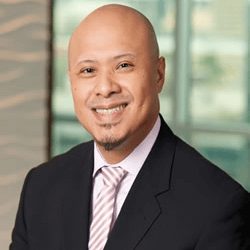Steve Horan, MBA, CPA CGMA, is the Director of the USF MBA Program and Assistant Professor of Business Administration. Steve has been a professor of business for over twelve years having started with Colorado Technical University in Sioux Falls SD. This is Steve’s fifth year with the University of Sioux Falls. Steve teaches a variety of undergraduate and graduate classes in accounting and finance, as well as overseeing the MBA program at USF. Steve has an extensive background in teaching and developing undergraduate, graduate, and online accounting and business classes and being an administrator in charge of faculty hiring, program quality, and program assessment. In addition, Steve’s professional experience and expertise are rooted in the accounting field, financial services, and construction industries, including working with financial reporting, Sarbanes-Oxley, budgeting ad planning, internal controls, strategy development and implementation, and accounting software implementation.
1. How did you get started in your career as a MBA Program Director?
It all started with me completing my MBA at the University of Sioux Falls (USF) in 2002. I fell in love with academics and the university environment and felt a calling to academics. With that new found calling, I began to teach at the ground campus of Colorado Technical University (CTU) in Sioux Falls, SD. I adjunct-taught classes in accounting and finance for three years, and was asked to become full time in 2007. I had a tremendously rewarding experience at CTU and worked with some of the most dedicated people that I have ever known. While at CTU, I was able to lead the accounting program which involved developing curriculum, ensuring program quality, hire adjunct faculty and advise students. In 2012, I had the opportunity to interview for an open faculty position at USF, my oldest son was a Freshman at USF at the time and I had been able to reconnect with USF during his process of deciding to attend USF. The MBA Director at the time was also teaching classes and was Chair of the Business Department, so she wore many hats. During the hiring process and job offer, we determined that a fit for me would be Director of the MBA Program based on my experience at CTU and as alum of the program. Very serendipitous and very divine for me to be offered the job at that time as just a few months after I started at USF, the announcement was made that the CTU campus in Sioux Falls would be closing.
2. What do you think are some of the leadership qualities an effective Business Director should have?
The best leaders are servant leaders, a director of a program is serving students, faculty and staff who support the program. Making sure that their needs are being met are my highest priority. A servant leader has to put the needs of others above the needs of self, a very Christian principle that we model and teach at USF. With any decision that I make, I ask myself “will this benefit the students”? I’m thankful that I am given daily examples of servant leadership with my colleagues and administration at USF.
3.Business is constantly changing, what types of things is your school doing to make sure students are learning the most updated business information?
Trying our best to have our finger on the pulse of business. About two thirds of our MBA classes are taught by adjunct faculty. They are academically qualified, but even better, they are professionally qualified. They live and breathe the subject matter that they teach on a daily basis. During the recruiting process we ask students what they want to gain from the program, we debrief students when they complete the program. We are always looking to see that we are meeting their needs in relation to the skills that they need to better and advance their careers. We also have an advisory board, made up of graduates, business leaders and industry experts that are advising us on subject matters that they deem important and relevant for an MBA student.
4.Faculty plays a critical role in the development of your student’s learning and in helping build their business competencies. What type of things are your faculty involved in and doing that makes their classroom unique to the student’s learning experience?
We strongly believe in academic freedom and we give our faculty the freedom to lead their classes in whatever way they believe to be the most affective. Since our faculty are professionally qualified and active in industry, they are able to relate the subject matter academically and practically. Our classes are collaborative, we expect our students to learn from each other as much as they would learn from faculty. Student participation is required to be successful. Learning how different points of view can come together to solve a problem or issues is important. Understanding how different businesses would solve a problem is important. Faculty lead discussions through collaboration, participation and presentation of findings.
5. What type of qualifications and experiences do your faculty bring to the class? How do you make sure they stay updated in their area of expertise and field of study?
All of our faculty, both full time and adjunct have come to USF with successful and proven industry experience. Most of our faculty have industry designations and certifications that need continuing education to keep active. Many of our faculty are involved with research and publishing. Many of our faculty are on the forefront of their industry making decisions about how to lead their businesses on a daily basis. We are blessed to have outstanding, passionate and qualified faculty that are industry experts.
Dr. Steve Horan, MBA Program Director at University of Sioux Falls6. Do your students have input on faculty promotion, award and recognition program? If so, can you expand on this and provide examples.
Not very much from the MBA perspective. We do award two outstanding faculty awards and an adjunct faculty award each year; however, they are University-wide and not specific to the Business School or MBA. When full time faculty is up for tenure, all course reviews are examined during the process, including MBA class reviews.
7. MBA degrees are still in high demand, but the competition is larger than ever. How does your MBA program differ from other schools?
We try to hold ourselves out as being uniquely different. We aren’t a large program. The program started in 1995 and at any given moment we have around one hundred students. I’m the advisor for all of our students. The personal touch is important, the students aren’t lost in a crowd. We pride ourselves on being an applied program and a qualitative program, emphasizing the art of leadership, management and ethics, the “soft” skills that successful business leaders need. We are affordable, total tuition for the program is $13,680 with no hidden fees. We use the cohort learning model, students go through the program together, they develop learning communities and hold each other accountable to learning. Lifetime friendships, contacts and networks are born in the USF MPA program. We offer an MBA with a Christian perspective, we use biblical leadership models and ethics models in the program.
While we are a Christian university, we are accepting of all faiths and beliefs, we have had students who are Hindu and Muslim or agnostic. We need all points of view in the classroom and we value and respect all viewpoints. We will also tailor schedules specifically to students if they want to finish a little sooner than the 21 months it takes to complete the program, or if they want to slow down to cover a busy time at work or a life event. We let the students decide how long they need to complete the program. All of our classes can be taken wither on campus or online, the dame professor teaches both classes in order to have seamless integration between them. Some of our on-campus students that commute to Sioux Falls for a class will switch to online classes in the winter. On campus students that move away from Sioux Falls can finish the program online. We also offer an MBA in Healthcare Administration, this has been a popular choice and a differentiator for us. We have two large health systems based in Sioux Falls. We have many doctors, nurses, pharmacists and other medical practitioners go through our program.
8. Almost every University is going online or trying to offer online degree programs. What is your business school doing in the online space and how do you set yourself apart?
Online is newer to us, we started our first online classes in the Fall of 2013. USF has offered many online programs in other areas, so we had the institutional knowledge and infrastructure to start the classes. We started online in response to market conditions, I would often turn people away from the program that couldn’t commit to one class per week at night because of work, travel or family conflicts. Also, I was losing potential students to other online programs. While we prefer that our students be on campus for classes, the reality is that not all students who want to earn an MBA can do that. We want to meet the needs of our students and help them achieve their educational and career goals. We had our faculty go through training to become certified to teach online and we designed the classes so that the same faculty can teach both the on-campus and online section of a class at the same time. Our students can take any class either on campus or online, whatever works for them and their schedule. We invite online students to show up in class if their schedule will allow.
9. What do you think are some of the biggest challenges that business schools are facing now and what is your school doing to confront them?
I see two main challenges, recruitment of new students and staying current with industry trends and the needs of businesses. For recruitment, the switch to online means that the market is nationwide, not just regionally. Differentiating the USF program from locally the competing programs is continual. We are fortunate to live in a region that is growing steady, has low unemployment and has a pro-business atmosphere. We are working on developing partnerships with local business to recruit students, adjunct faculty and learn what topics are important to them. Our advisory committee, adjunct faculty, and graduates have been crucial in helping us develop existing business relationships, that we want to continue to leverage for recruitment and staying current.
10. We learned a great deal about you and your school. If I was a potential student or employer that was stuck between choosing two different MBA programs, what other things would you want me to know about your degree and school to help with my selection?
If price is a factor, we are intentional about being an affordable program with high quality. I have discovered that adult learners always ask “what will this cost” and “when will I be done”? Our cost is affordable and you will be hard pressed to find a lower cost program. Our MBA is planned out for you, once you start, you take twelve classes, each for seven weeks, then you are done. You know what classes you will take and when you will take them, we have the whole plan set up for you. If you tell us you want to finish faster or slow the process down, we are happy to adjust the schedule to meet individual student needs. We believe in serving our students and providing personal, timely service.

Dr. Emad Rahim is an award-winning entrepreneur, educator, author, community leader and TEDx Speaker. He currently serve as the Endowed Entrepreneur-in-Residence at Oklahoma State University and teaches at the Jack Welch Management Institute in the Executive MBA program. He was recognized by the United Nations Foundation as a 2013 Empact100 Honoree for his social entrepreneurship work, received a Congressional Award for his community service and was the recipient of the Forty Under 40 Business Leadership Award sponsored by Syracuse University. His personal story was turned into a short documentary, “Against the Odds,” and featured in the Huffington Post and Forbes. He co-authored “Leading Through Diversity: Transforming Managers Into Effective Leaders” and “The 4-Tions: Your Guide to Developing Successful Job Search Strategies” and is a frequent contributor to the Refractive Thinker book series, CEO Magazine, TweakYourBiz and YFS Entrepreneurship Magazine. Fellow him on Twitter @DrEmadRahim





























